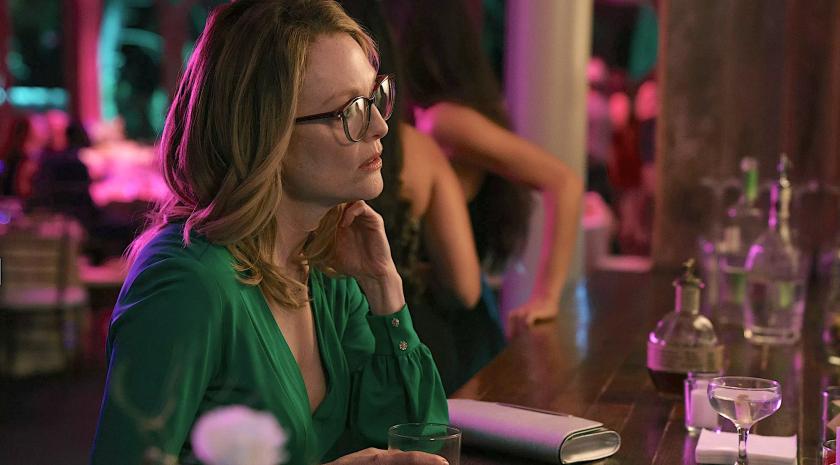With Gloria (2013), A Fantastic Woman (2017) and Disobedience (2018), Chile’s Sebastián Lelio has earned a deserved reputation as a sympathetic director of women. It may seem a strange move for him to remake Gloria only a few years after the Spanish-language original, but Lelio claims he was inspired to do it by a meeting with Julianne Moore, who said she’d do it if he would direct.
The action has been transplanted to Los Angeles from Santiago, with both the English script and many of the camera shots closely following the 2013 version. It’s the story of a 50-something divorcée determined to enjoy life to the fullest in her own way, which frequently means trips to the middle-aged swingers’ club where she loves to dance to vintage disco classics.
Lelio chooses to observe and listen to the way his characters behave rather than trying to lock them into a dramatic framework. He follows Gloria through the changing scenes of her life, from awkward family gatherings to therapeutic “laughter” classes or conversations with her workmate, who fears she’s about to lose her job because of her advancing age. One night at the club she meets Arnold (John Turturro, pictured below), also divorced, and they embark on a tentative affair (“love is in the air,” as the fast-pumping soundtrack unnecessarily reminds us). Experience has taught Gloria not to get too carried away by hopes of a miraculous romance, though she seems quietly pleased with the way their liaison is progressing (there’s some wry humour in the bedroom when she peels off the velcro-fastened girdle that Arnold wears).
 However, her rising hopes begin to fade when she sees how Arnold is an indecisive, neurotic mess, unable to break the grip of his demanding daughters and his ex-wife (“so are you divorced or not?” she asks him pointedly). Gloria has emotional entanglements with her own adult children but is determined to keep looking ahead and throwing herself into new experiences. She wants to listen to her heart, but she’s prepared to accept that that the consequences could be painful.
However, her rising hopes begin to fade when she sees how Arnold is an indecisive, neurotic mess, unable to break the grip of his demanding daughters and his ex-wife (“so are you divorced or not?” she asks him pointedly). Gloria has emotional entanglements with her own adult children but is determined to keep looking ahead and throwing herself into new experiences. She wants to listen to her heart, but she’s prepared to accept that that the consequences could be painful.
Paulina García played Lelio’s original Gloria, and brought an endearingly earthy realness to the role, even a touch of slapstick. The dynamic was further modulated by the fact that her lover Rodolfo (Sergio Hernández) was a significantly older man. Moore’s Gloria is more ethereal and guarded – perhaps the amour propre of a Hollywood A-lister does that to you – but while it’s a different performance it’s still a compelling one, always gently shaded with a sense of time irrevocably passing. Moore expertly catches Gloria’s fleeting and fragile emotions, from doubt, hope and regret to the liberating joy of her concluding dance to Laura Branigan’s “Gloria”. While it’s not exactly a hymn to life beginning at 50-plus, Gloria might be saying “I’ll do it my way, and my time is now.”















Add comment